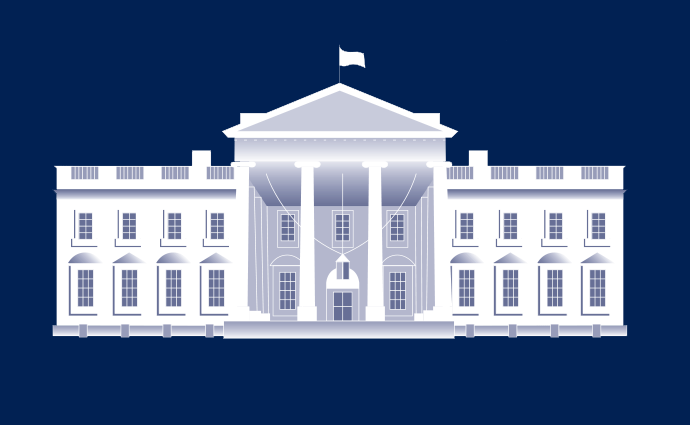Biden Administration Plans to Expand COBRA, ACA Premium Subsidies
Extending and increasing premium subsidies for COBRA and Affordable Care Act enrollees would cost approximately $57.0 billion over the next three years and may lower uninsurance.

Source: Thinkstock
- The Biden Administration’s coronavirus relief plan seeks to expand healthcare coverage during the pandemic by increasing and extending COBRA and Affordable Care Act premium subsidies and supporting veterans’ healthcare coverage through the Veteran Health Administration, the American Rescue Plan summary explained.
“I look forward to working with members of Congress from both parties to move quickly to get the American Rescue Plan to the American people,” president-elect Joe Biden said in prepared remarks introducing the plan.
“And then we can move with equal urgency and bipartisanship to my Build Back Better Recovery Plan that I will call for next month to generate even more economic growth.”
In its summary of the American Rescue Plan, the Administration cited Kaiser Family Foundation’s most recent insurance loss estimated which calculated that approximately two to three million individuals lost their employer-sponsored health plan between March 2020 and September 2020. Studies have demonstrated that these losses have amplified racial disparities
The American Rescue Plan requested that Congress subsidize healthcare coverage through Consolidated Omnibus Budget Reconciliation Act (COBRA). Congress extended COBRA coverage due to the pandemic back in May 2020. The pandemic-era COBRA policies resulted in much confusion among employers.
READ MORE: Average ACA Exchange Premiums Drop for Third Year Running
Organizations including the American Benefits Council and America’s Health Insurance Plans (AHIP) have urged Congress to offer COBRA coverage subsidies for months.
Subsidizing COBRA coverage could reduce uninsurance, a Kaiser Family Foundation issue brief found. According to the June 2020 brief, it could cost $106 billion to subsidize COBRA coverage for two years. However, it would address one of the primary reasons that employees may opt for uninsurance over COBRA coverage: the cost of COBRA premiums.
The American Rescue Plan would extend subsidies for COBRA coverage through September 2021.
In addition to the COBRA subsidies, the American Rescue Plan aimed for a lower or even non-existent premium for Affordable Care Act marketplace enrollees. To achieve that end, the plan requested that Congress consider expanding and boosting the premium tax credit.
The Biden Administration called on Congress to establish policies that limit Affordable Care Act premiums to 8.5 percent of enrollees’ income, at a maximum.
READ MORE: CMS Temporarily Lowers Individual, Small Group Exchange Premiums
The Trump Administration, which vehemently opposed the Affordable Care Act, reduced marketplace premiums over the course of its tenure in office.
In October 2020, CMS announced that Affordable Care Act marketplace premiums had dropped and were particularly attainable for enrollees who qualified for premium tax credits.
However, these decreases in the average Affordable Care Act marketplace premiums in 2020 did not reduce premium rates to the levels in plan year 2017. CMS added that for those without a premium tax credit the Affordable Care Act health plans were anything but affordable. This was part of the Trump Administration’s argument in favor of scrapping the law.
“While today’s report shows the Administration’s efforts to stabilize the market are working, average premiums are still significantly higher than when the Affordable Care Act (ACA) was first implemented and affordability remains a significant challenge for people who do not qualify for a premium tax credit and must pay the entire premium themselves,” CMS stated at the time.
However, according to the American Rescue Plan summary, the incoming administration expected that expanding and increasing premium tax credits would bring down premium-related healthcare spending for over 10 million Americans. It would also reduce uninsurance.
READ MORE: Payers Offer Premium Credits for Cash-Strapped Members, Employers
Biden’s COBRA and Affordable Care Act subsidies would cost $48.5 billion in 2021, $8.6 billion in the second year, and nothing in the third year of the recovery plan, according to Moody’s Analytics. In total, the government would spend $57.0 billion on this 100 percent tax credit for COBRA coverage premiums.
Moody’s Analytics calculated that the entire rescue package would cost more than $1.8 trillion by the end of 2023. The American Rescue Plan summary estimated that the plan would cost around $1 trillion.
The Biden administration’s new plan also took into account veterans’ health insurance losses.
Prior to the pandemic, the Veteran Health Administration was seeing some success, specifically with its medication adherence program. The payer’s cost-related medication non-adherence rate was 5.9 percent lower than non-adherence among members in other health plans.
When the coronavirus pandemic hit, the Veterans Health Administration took on a pivotal role in the response efforts. The Veteran Health Administration’s widespread presence enabled the organization to be a safety net for communities that were particularly hard-hit by coronavirus.
Additionally, the organization continued to extend healthcare coverage to veterans. Veterans who lost their employer-sponsored health plans could look to the Veterans Health Administration for coverage. That migration, along with other heightened expenses during the pandemic, has put an economic strain on the Veterans Health Administration.
In response, the incoming president is asking Congress to provide $20 billion in relief funding for the Veterans Health Administration.
“We can do these bold, practical things now. I know what I just described will not come cheaply. But failing to do so will cost us dearly. The consensus among leading economists is we simply cannot afford not to do it,” president-elect Joe Biden said in his prepared remarks.
